How to Become Fluent in English Speaking. This blog post offers a roadmap to achieving fluency in spoken English. It outlines practical steps, resources, and strategies for learners to improve their pronunciation, grammar, vocabulary, and conversation skills.
Category: Speaking
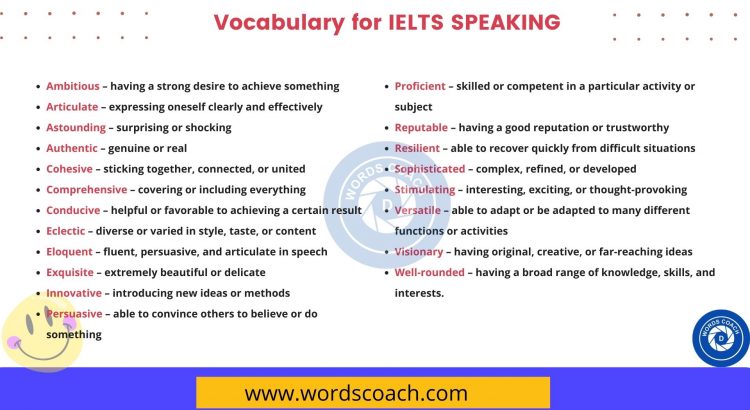
Vocabulary for IELTS SPEAKING
Vocabulary for IELTS SPEAKING – Improve your IELTS Speaking score with a strong vocabulary! Discover the meanings of essential words that are commonly used in the IELTS Speaking test to express your ideas more clearly and effectively. This guide will provide you with the vocabulary you need to excel in the IELTS Speaking test.
Tips to improve your vocabulary for IELTS speaking
Tips to improve your vocabulary for IELTS speaking
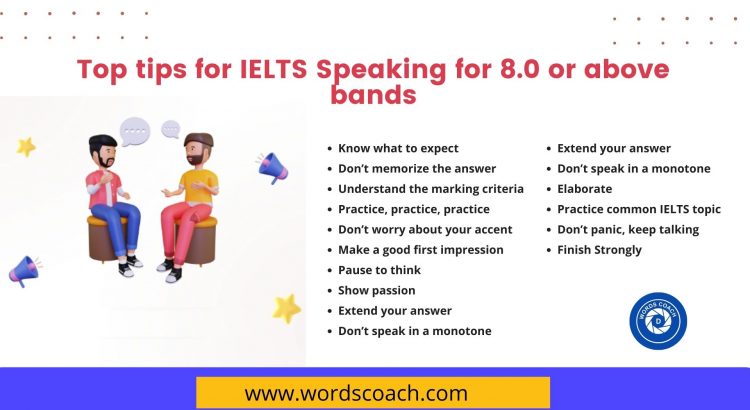
Top tips for IELTS Speaking for 8.0 or above bands
A lot of candidates who take the IELTS Speaking test find this section the hardest one because it involves face-to-face communication. But in fact, IELTS Speaking is the easiest section of IELTS to improve your score.
Here we’ve gathered top IELTS Speaking tips to increase your IELTS Speaking score:
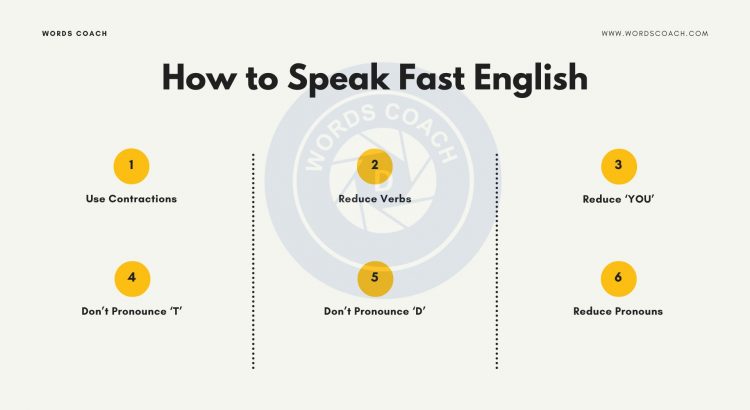
How to Speak Fast English
How to Speak Fast English
1. Use Contractions
2. Reduce Verbs
3. Reduce ‘YOU’
4. Don’t Pronounce ‘T’
5. Don’t Pronounce ‘D’
6. Reduce Pronouns
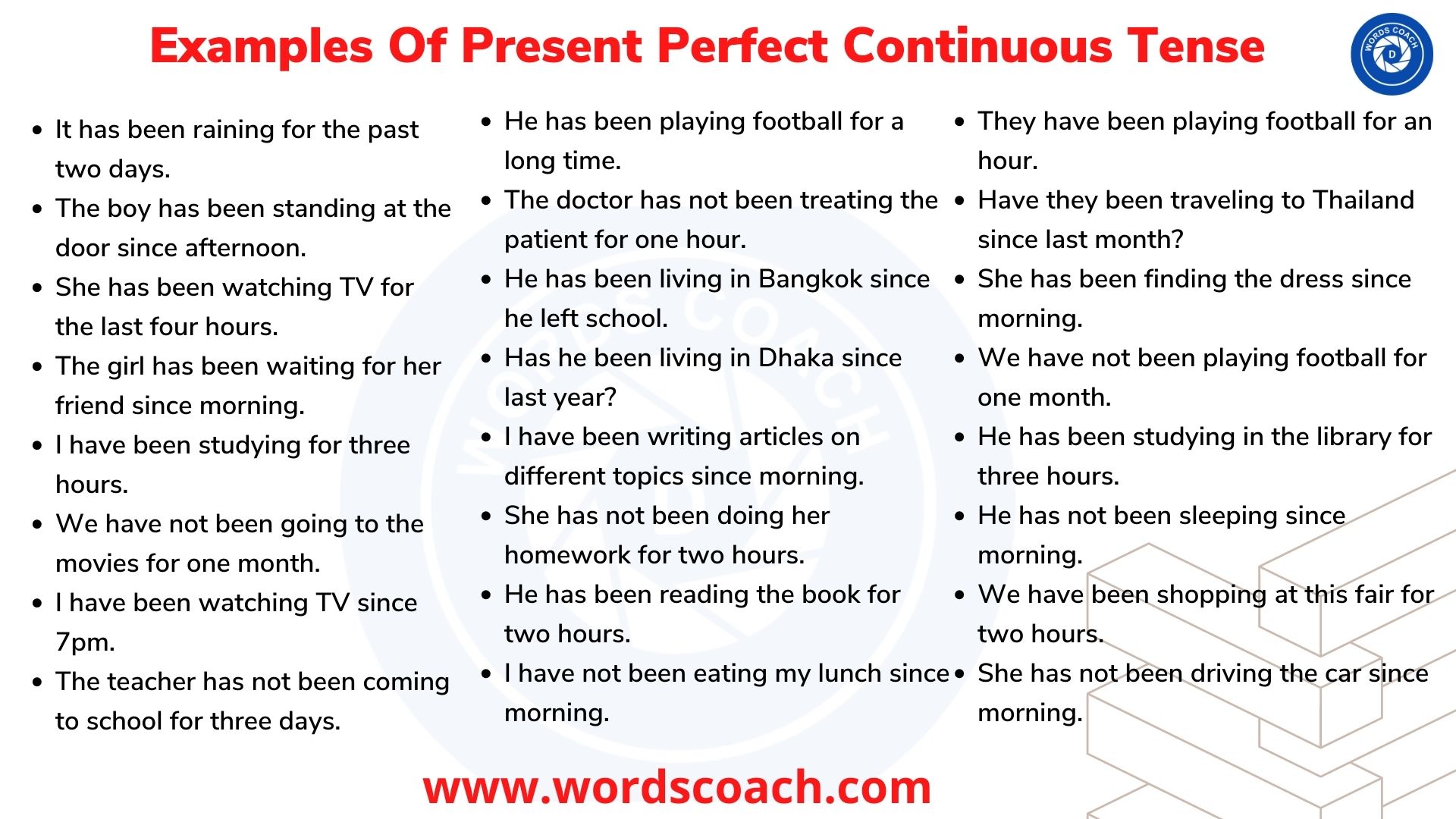
Examples Of Present Perfect Continuous Tense
Present perfect continuous tense depicts an action that started in the past, is continuing at present, and may continue in the future. The structure of this tense is has/have + been + main verb + ing.
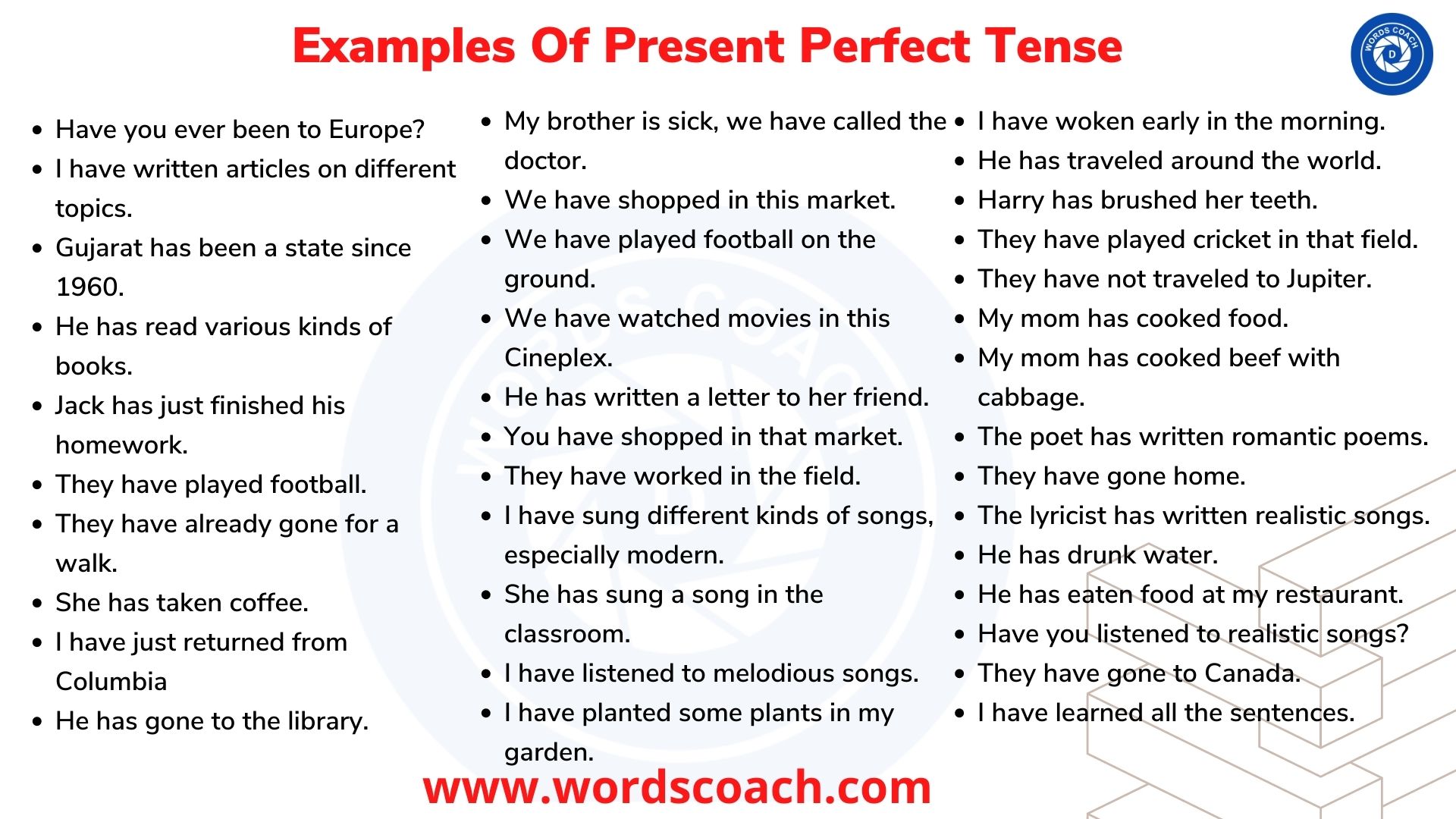
Examples Of Present Perfect Tense
Present perfect tense is used when we have to describe an action that has been completed in the immediate past or that occurred at an indefinite time in the past, or that began in the past but continues in the present.
Examples Of Present Perfect Tense
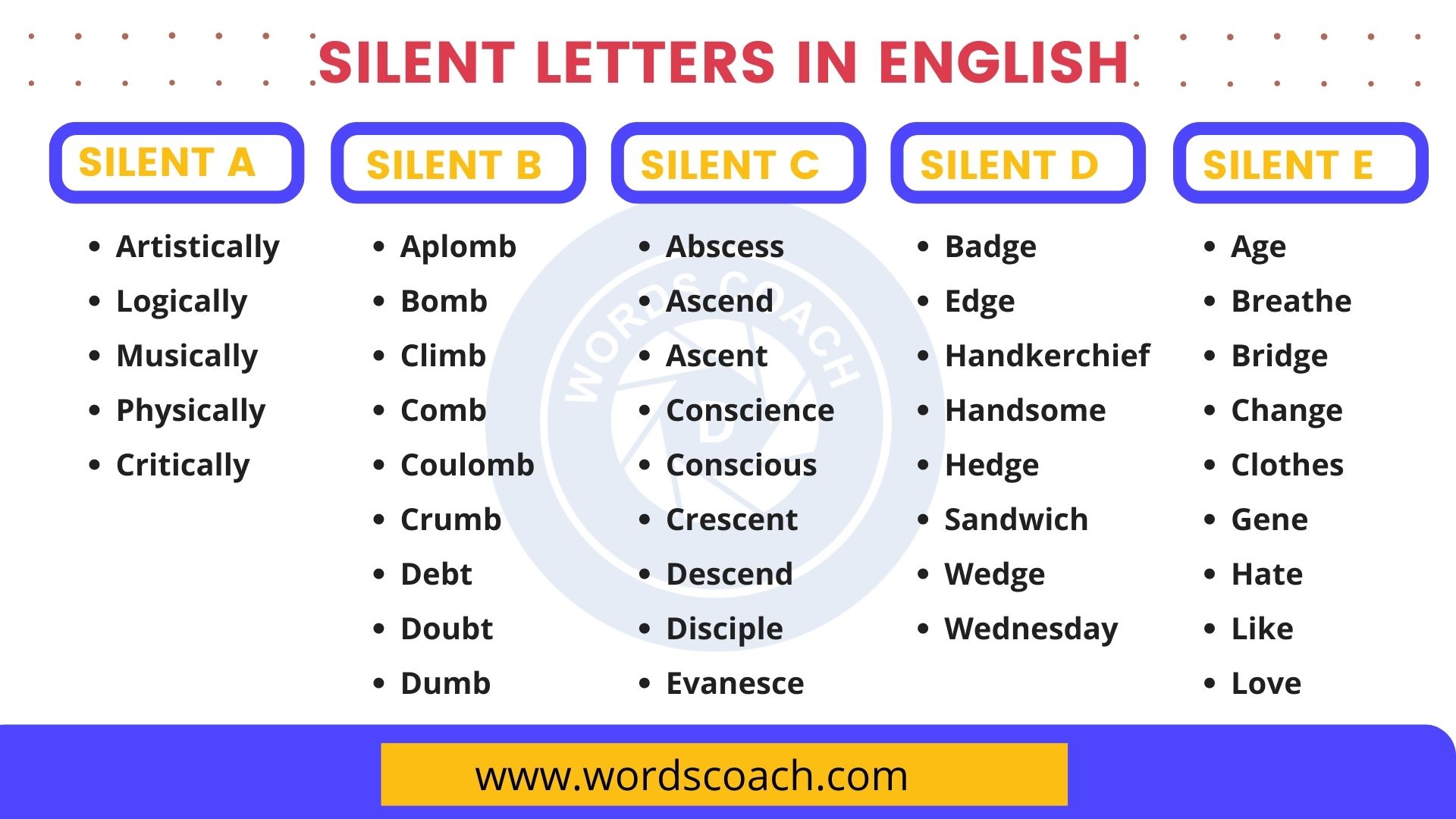
Words with Silent Letters from A-Z
A silent letter is a letter that, in a particular word, does not correspond to any sound in the word’s pronunciation. One of the noted difficulties of English spelling is a high number of silent letters, they make the spelling of words different from their pronunciation.
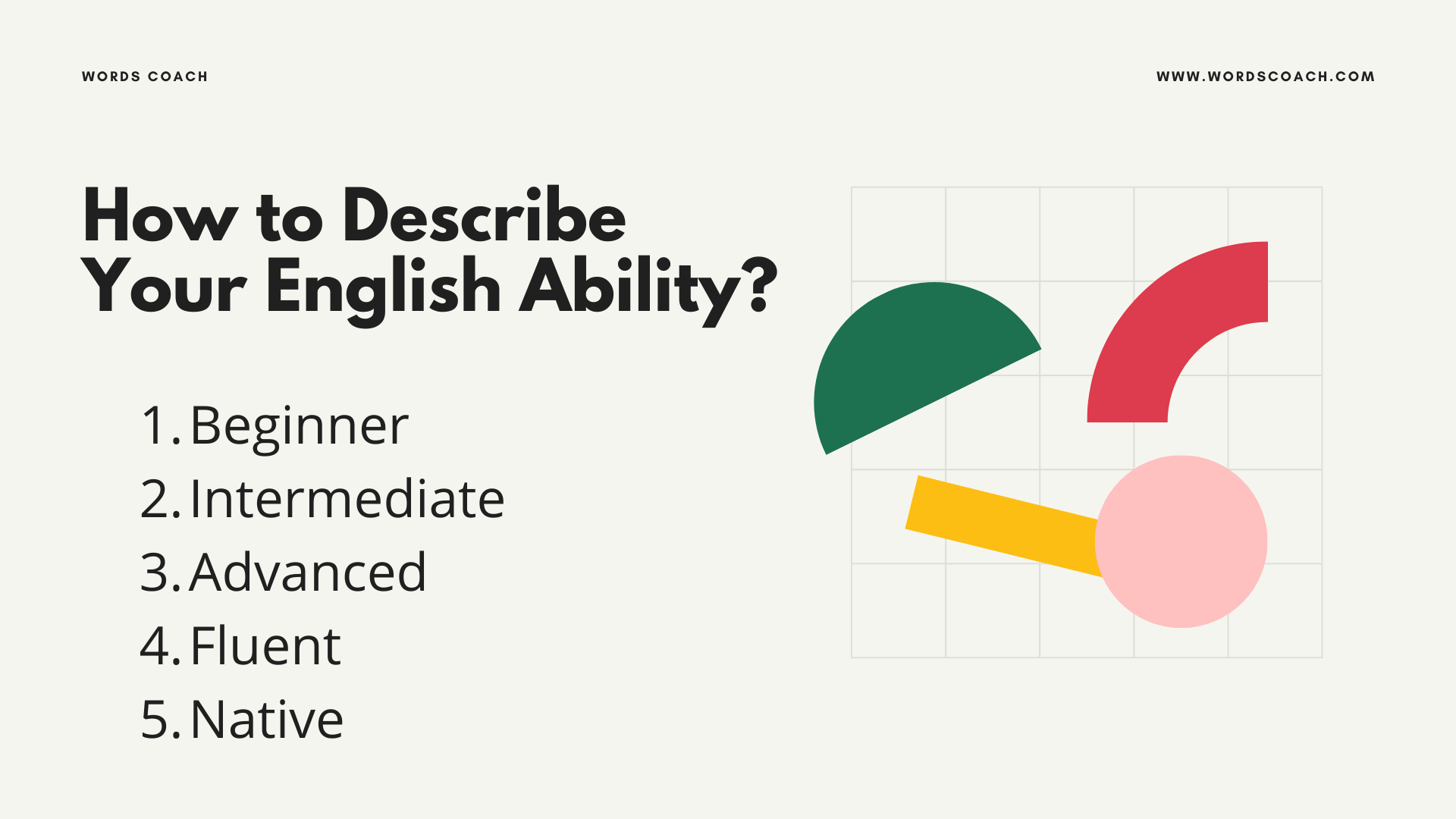
How to Describe Your English Ability?
You can describe your language skills as Beginner, Intermediate, Advanced, Fluent, Native.
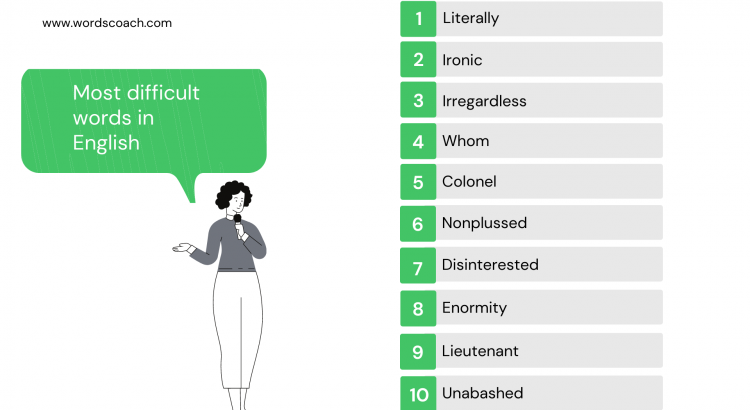
Most difficult words in English
English can be a real pest, and even native speakers find themselves stumbling over some stubbornly tricky words. Sometimes they’re difficult to understand, other times they’ve been misused so often that their original meaning has gotten lost.
Pronunciation can also be a problem. As a follow-up to our article on confusing words, here are ten of the most difficult words in English.
Here are the most difficult words in English.
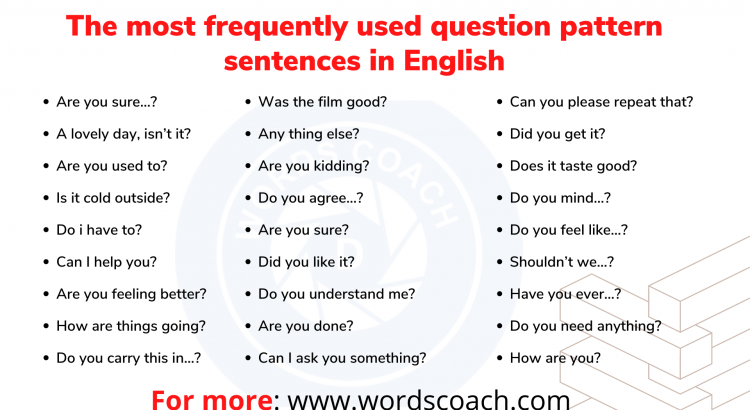
The most frequently used question pattern sentences in English
The most frequently used question pattern sentences (Interrogative Sentence) in English. 4 Types of Questions in English – General or Yes/No Questions, Special or Wh- Questions, Choice Questions, Disjunctive or Tag Questions
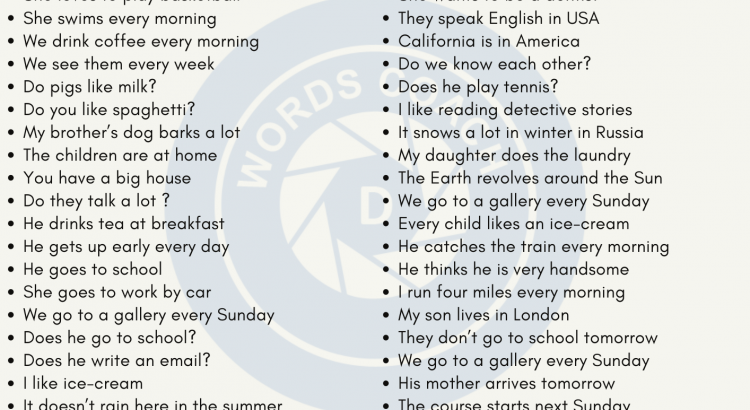
Examples Of Simple Present Tense Sentences
English Examples of Simple Present Tense Sentences. I cook every day., The sun rises in the east., She plays with her brother., She carries her child to her bed., Does she help Tom?, Her brother is very rich.
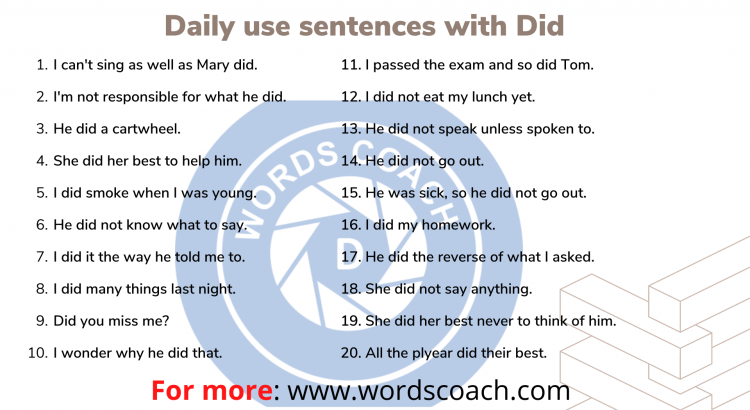
How and when to use Did with Daily use sentences
How and when to use Did with Daily use sentences. Did is the past tense of do. Example – I’m not responsible for what he did.
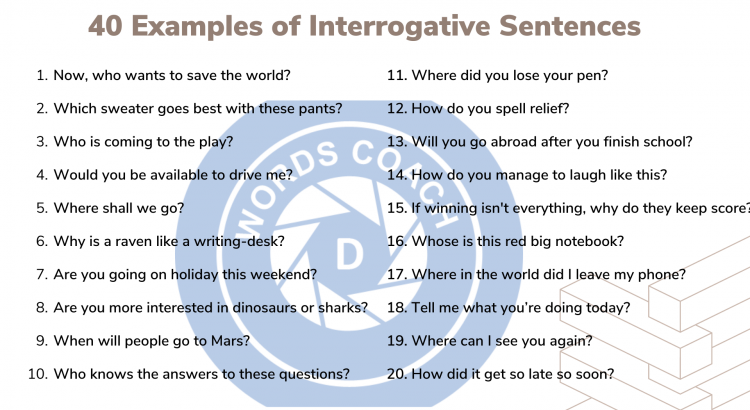
Interrogative Sentences
Learn about interrogative sentences, their types, and how to use them effectively in English. Discover examples of yes/no questions, Wh- questions, tag questions, and more to enhance your communication skills.
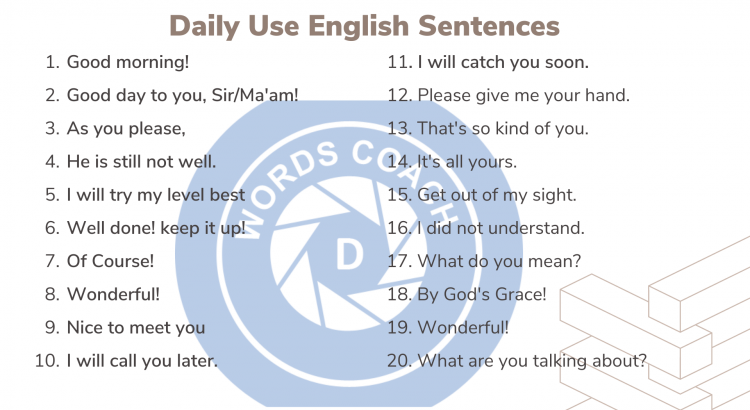
Daily Use English Sentences
Enhance your spoken English with these practical daily use English sentences. From greetings to asking for help, master common phrases for smooth and natural conversations.

